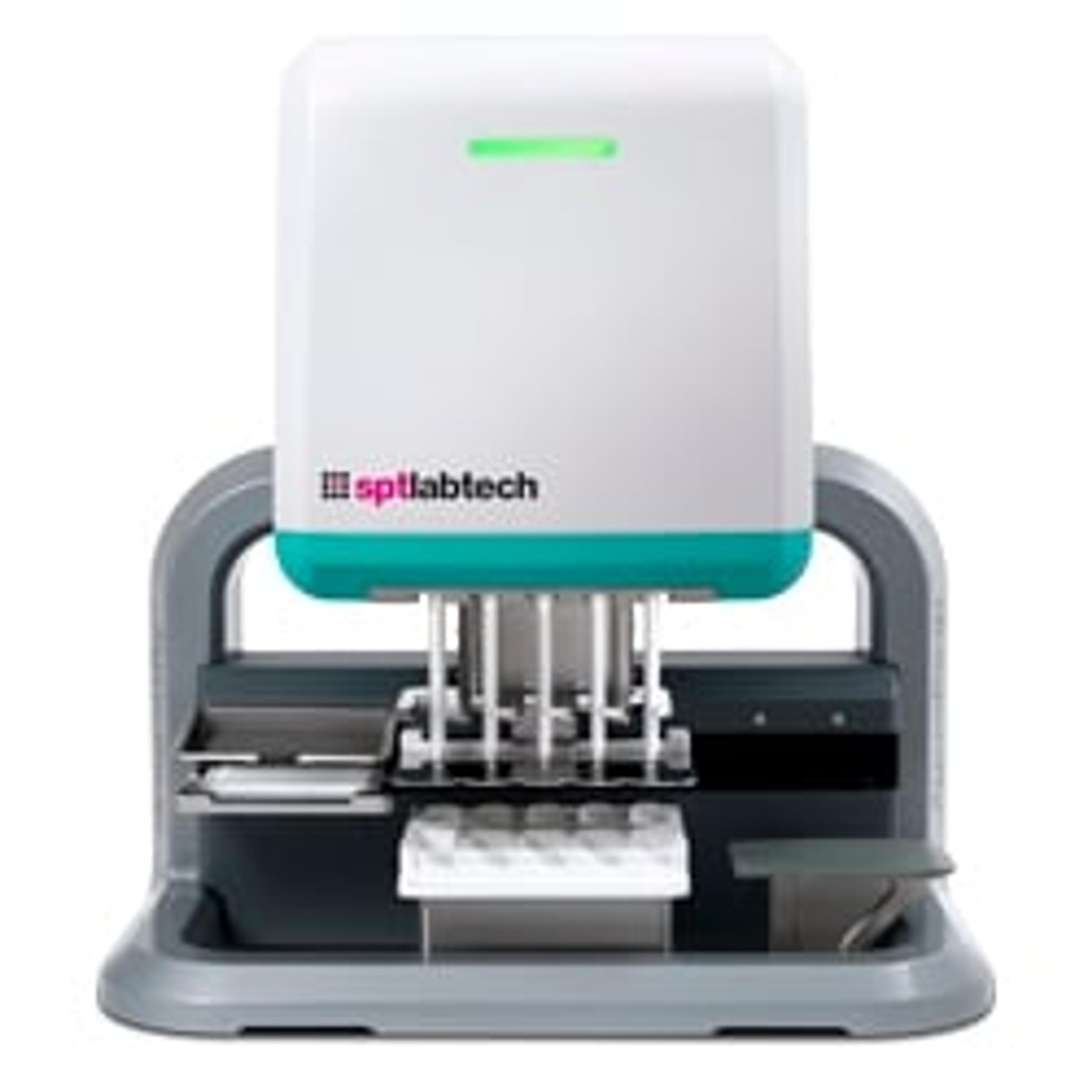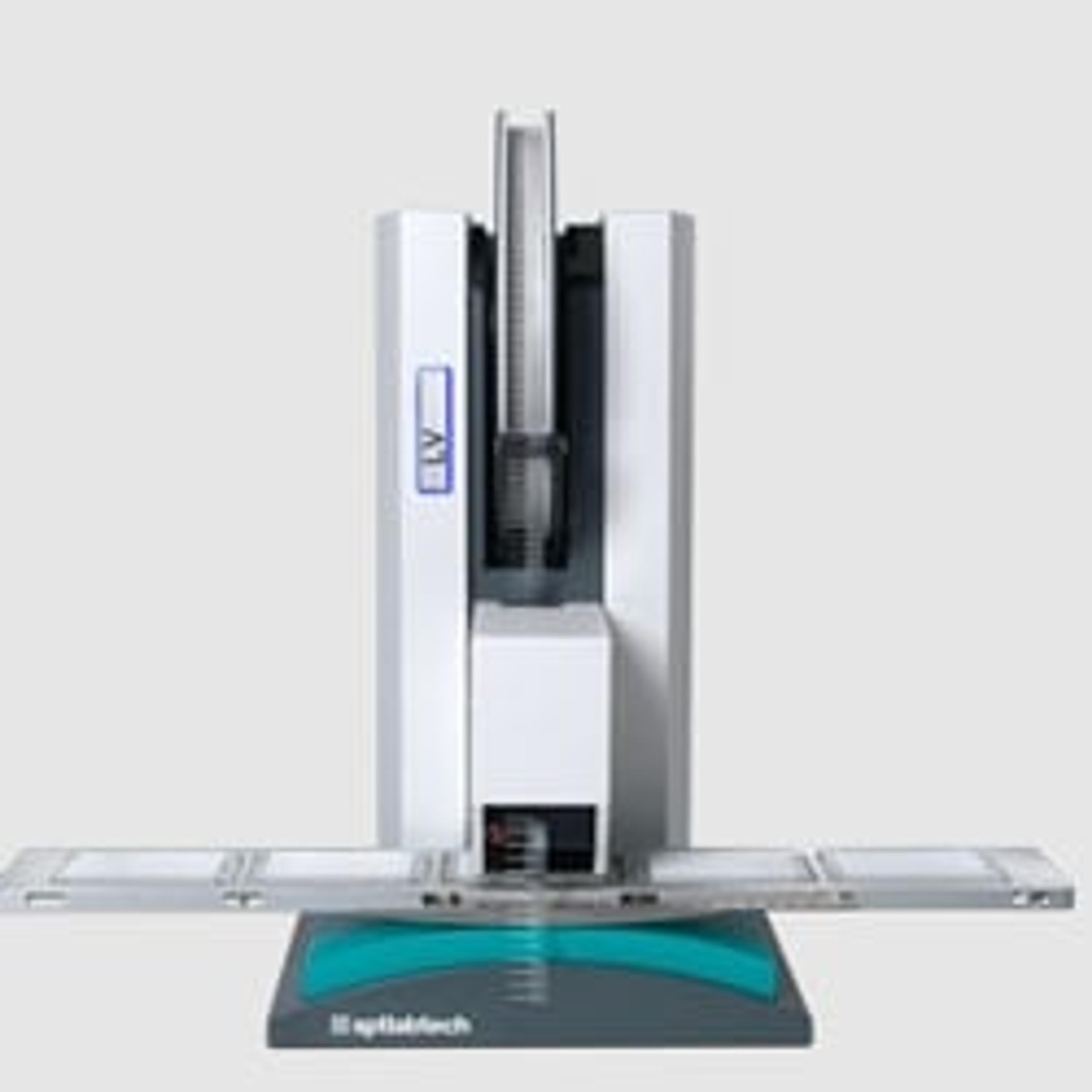Revolutionizing large-scale proteomics research
Achieving precision with positive displacement liquid handling and miniaturization
23 May 2024Proteomics is transforming our understanding of biology, facilitating disease marker screening, investigating protein-protein interactions, and monitoring dynamic changes in protein expression. By examining proteins on a functional level, we can unravel complex biological phenomena and validate disease mechanisms, which are crucial for drug development and clinical research. The integration of next-generation sequencing (NGS) readouts has further revolutionized proteomics, enabling large-scale studies that identify population biomarkers deepen our understanding of disease at a molecular level.
The role of automation in proteomics
Proteomics workflows require meticulous and laborious sample preparation, including many liquid handling steps at ultra-low volumes. When performed manually, this process is tedious and error-prone, and introduces variability amongst scientists that can impact the reliability of results. Automated liquid handling systems alleviate these issues, ensuring consistency and accuracy across experiments while significantly increasing throughput and facilitating scalability. By streamlining the sample preparation process, automation enables faster and more precise execution of protocols, generating extensive experimental data and driving biological problem-solving to new heights.
The importance of positive displacement technology
Not all liquid handling technologies are created equally. Platforms that use traditional air displacement technology, like standard handheld pipettes, can be affected by liquid viscosity or air pressure. In contrast, platforms that utilize positive displacement technology, where the piston comes into direct contact with the liquid, maintain accuracy across a wide range of liquid types, even at nanoliter volumes. This technology minimizes the risk of pipetting errors and inaccuracies that are particularly detrimental in highly sensitive quantitative assays in proteomics workflows.
Positive displacement technology is the backbone of SPT Labtech’s ‘dynamic duo’ which combines the nanoliter multi-channel pipetting of mosquito® and the robust and reliable non-contact dispensing of dragonfly® discovery. This proven partnership has been widely used and validated across omics methods, enabling labs to leverage the benefits of miniaturization.
Benefits of miniaturization and parallelization
Miniaturization allows researchers to scale down reaction volumes without compromising accuracy or precision. This capability enables more experiments to be conducted in parallel, increasing the density of assays and generating more data from minimal sample volumes. Miniaturization complements parallelization, making it feasible to analyze larger numbers of samples simultaneously.
As errors become more pronounced at low volumes, automation, and positive displacement in particular, is the only way that researchers can achieve the necessary levels of miniaturization.
The rise of single-cell techniques
The rise of single-cell analysis has further emphasized the importance of miniaturization. By unraveling the complexity of biological systems, single-cell analysis has proven to be a powerful tool for understanding cellular heterogeneity at unprecedented resolution. However, this complexity demands the analysis of vast numbers of single cells, which, when done manually, involves a huge amount of liquid handling at small volumes. As the scale of single-cell analysis grows, miniaturization technology will be crucial in managing costs and labor, making these techniques accessible to more researchers worldwide.
The Pharma Proteomics Project
A landmark example of the impact of these technologies is the Pharma Proteomics Project, which is characterizing the plasma proteomic profiles of over 54,000 UK Biobank participants. This study, which is the largest proteomics study conducted to date, has revealed significant biological insights into proteomic disease signatures and developed prediction models for various health indicators. The analysis has uncovered 4,287 protein quantitative trait loci (pQTLs), 81% of which were novel genetic associations with protein levels. The success of this large-scale project has been enabled by the Olink® Explore biomarker discovery platform, bolstered by SPT Labtech’s positive displacement liquid handling technology that enables miniaturization of reactions without compromising accuracy, in combination with low dead volumes, meaning that new scientific insights can be uncovered by only minute amounts of sample.
Making miniaturization more accessible
Once a niche field, proteomics is quickly becoming more commonplace across biotech and pharmaceutical R&D. Therefore, liquid handling technology must prioritize accessibility to support its widespread adoption. User-friendly software and compact instrument footprints will facilitate this transition, ensuring that labs of all sizes can benefit from innovations in proteomics research.
This is certainly an area that SPT Labtech has focused on in product development. We understand that labs typically don’t have in-house automation experts, and so we have put significant emphasis on usability, leading to visual wizard-driven software that simplifies protocol development and execution. Not only does this ease the transition to new automation technology by reducing the need for extensive training, but also ensures the instrument maintains its value as personnel move in and out of the lab.
Positive displacement liquid handling and miniaturization are instrumental in supporting the wider adoption of proteomics workflows across the life sciences, enhancing accuracy, reducing costs, and increasing throughput, and enabling scientists to uncover new biological insights and drive innovation in disease research and drug development. As proteomics continues to evolve, this technology will continue to play a critical role in bringing the benefits of this field to the masses.
This guest editorial article was written by Joby Jenkins, Chief Technology Officer at SPT Labtech.


